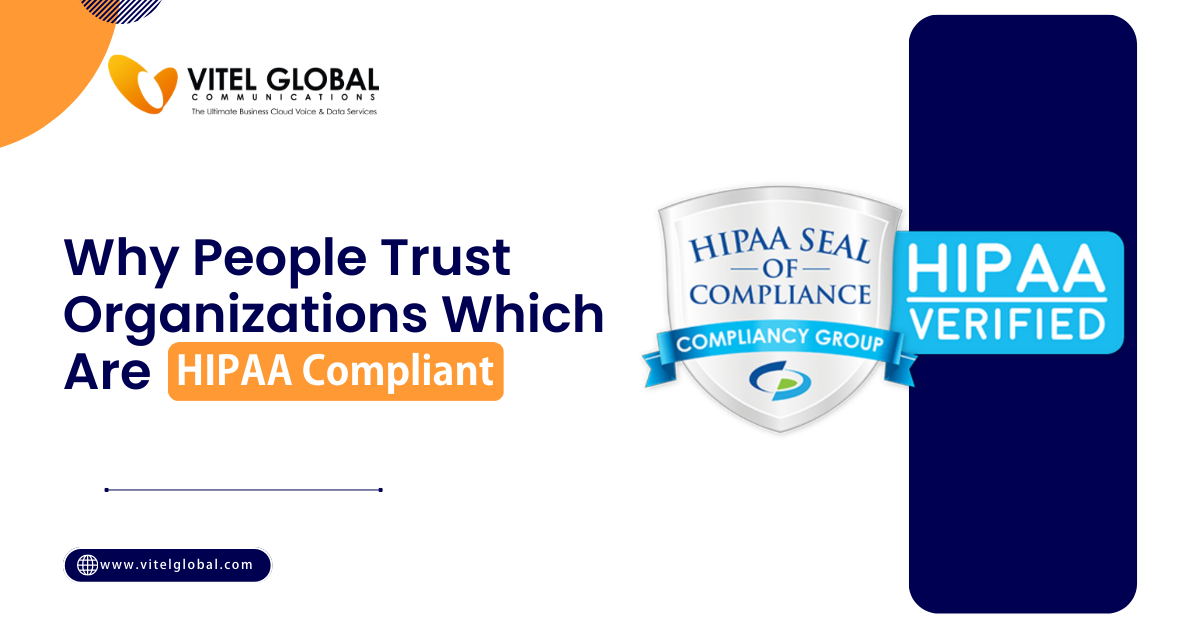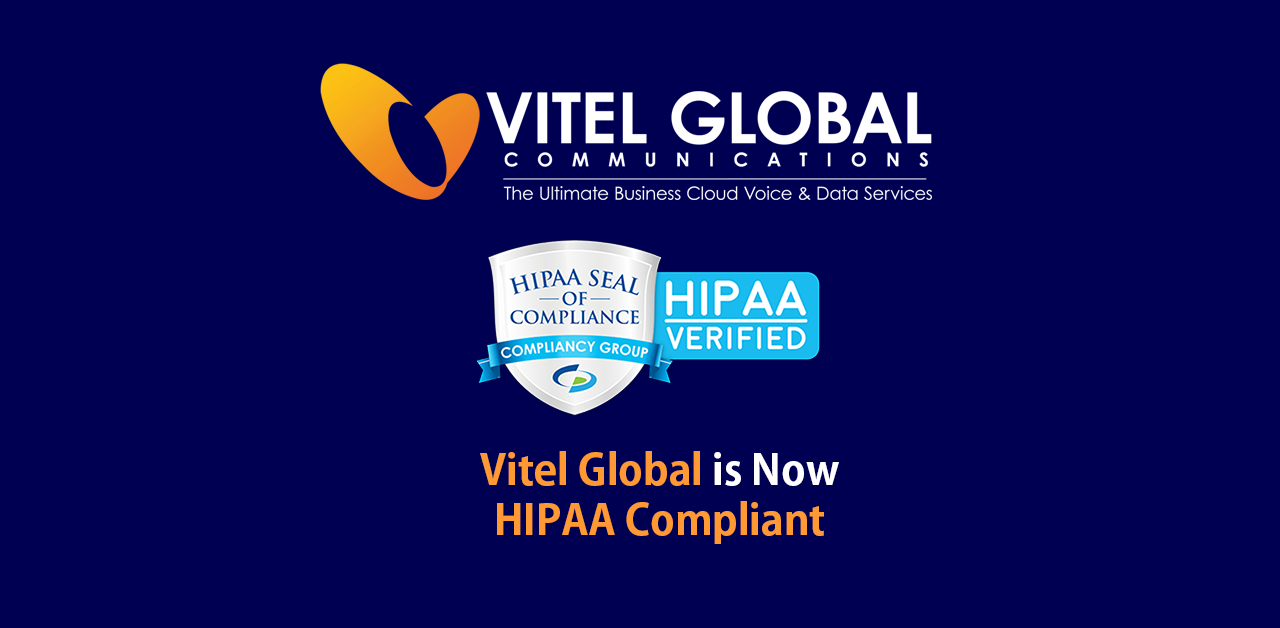Why People Trust Organizations Which Are HIPAA Compliant?

5 min read
In this article, we will explore why people trust HIPAA-compliant organizations.
Data protection has become a major concern for everyone in today’s digital age. With the rise in cyber-attacks and data breaches, people are becoming more cautious about with whom they share their personal and sensitive information.
It is where HIPAA compliance comes in. HIPAA (Health Insurance Portability and Accountability Act) is a federal law that sets standards for protecting sensitive patient data. Organizations that comply with HIPAA regulations are seen as trustworthy by the public.
Introduction
In recent years, the healthcare industry has seen a rise in cyber-attacks and data breaches. These attacks have resulted in the theft of sensitive patient data, such as social security numbers, medical records, and payment information. It has caused people to become more cautious about whom they share their personal information with. HIPAA compliance has become important in building trust between healthcare organizations and their patients.
What is HIPAA?
HIPAA (Health Insurance Portability and Accountability Act) is a federal law enacted in 1996 that sets standards for protecting sensitive patient data. The law regulates how healthcare providers, insurance companies, and other organizations handle patient information. It covers many areas, including privacy, security, and breach notification.
HIPAA Compliance
It requires healthcare organizations to protect patient data’s confidentiality, integrity, and availability. It includes implementing physical, administrative, and technical safeguards to protect electronic and paper-based patient records. Healthcare organizations must also train their employees on HIPAA regulations and designate a privacy and security officer to oversee compliance.
Benefits of HIPAA Compliance
HIPAA compliance offers many benefits to healthcare organizations. In addition to protecting patient data, observation can help organizations avoid costly fines and legal action. Here are some of the benefits of HIPAA compliance:
1. Building Trust with Patients
HIPAA compliance can help healthcare organizations build trust with their patients. Patients are more likely to trust organizations that take their privacy seriously and are transparent about handling their data. By implementing HIPAA regulations, organizations can be committed to protecting patient data and building trust.
2. Legal Protection
HIPAA compliance can also provide legal protection for healthcare organizations. The law sets specific requirements for protecting patient data and penalizes non-compliance. By complying with HIPAA regulations, healthcare organizations can avoid costly fines and legal action.
Building Trust with Patients
Building trust with patients is essential for healthcare organizations. Patients are more likely to seek care from organizations they trust and are comfortable with. HIPAA compliance can help organizations build that trust by ensuring their data is handled with care and security. Patients are more likely to share their personal information with organizations they trust, leading to better healthcare outcomes.
Organizations must opt for HIPAA (Health Insurance Portability and Accountability Act) compliance because it is a federal law providing privacy and security regulations for healthcare organizations in the United States. HIPAA aims to protect individuals’ medical information and ensure the confidentiality and integrity of electronic health information.
Companies dealing with tons of data related to individuals have to abide by the rules and regulations of the government to safeguard the data from getting stolen by inappropriate organizations.
Privacy of the data relating to the individuals is a huge concern since this must deal with multiple things. It matters in terms of national security policies and safeguarding the data of the state’s citizens.
Each state has their policies, and they implement them in a different ways. For any organization, before allowing users to share their sensitive information about health-related data, the people willing to share the data must be aware of HIPAA compliance.
HIPAA Compliant Assists Organizations in Several Ways, Including
- Ensuring privacy: HIPAA requires healthcare organizations to implement privacy policies and procedures to safeguard patients’ protected health information (PHI). It also mandates that organizations obtain written consent from patients before disclosing their PHI.
- Enhancing security: HIPAA also requires organizations to implement security measures to protect electronic PHI from unauthorized access, theft, or disclosure. It includes using encryption and passwords to secure electronic records and ensuring that only authorized personnel can access PHI.
- Promoting efficiency: HIPAA encourages the adoption of electronic health records (EHRs) and supports interoperability between different healthcare organizations. It enables providers to access patient forms quickly and efficiently, improving the quality of care.
- Avoiding penalties: Failure to comply with these regulations can result in significant penalties and fines, which can be costly for organizations. Therefore, HIPAA compliance is crucial to avoid legal and financial consequences.
It assists organizations by providing guidelines to protect patient privacy and security, promoting the adoption of electronic health records, and avoiding legal and financial penalties.
HIPAA Compliance Offers Several Benefits To Organizations, Including
- Improved patient trust: HIPAA compliance demonstrates an organization’s commitment to protecting patient privacy and security. It can help build patient trust and enhance the reputation of the organization.
- Reduced risk of data breaches: HIPAA compliance requires organizations to implement security measures to safeguard electronically protected health information (ePHI). It can reduce the risk of data breaches, which can be costly and damaging to an organization’s reputation.
- Avoidance of legal and financial penalties: Failure to comply with HIPAA regulations can result in significant penalties and fines. Organizations can avoid these legal and financial consequences by complying with HIPAA regulations.
- Improved efficiency: HIPAA promotes the adoption of electronic health records (EHRs) and supports interoperability between different healthcare organizations. It can improve the efficiency of healthcare delivery, enabling providers to access patient forms quickly and efficiently.
- Enhanced data accuracy and completeness: HIPAA compliance requires organizations to maintain accurate and complete patient records. It can improve the quality of care and reduce the risk of medical errors.
It offers several benefits to organizations, including improved patient trust, reduced risk of data breaches, avoidance of legal and financial penalties, improved efficiency, and enhanced data accuracy and completeness.
There are several reasons why organizations have to opt for HIPAA compliance; they can be found below:
Legal Requirements
HIPAA is a federal law, and healthcare organizations must comply with its regulations. Failure to comply can result in significant penalties and fines.
Protection of Patient Privacy
HIPAA provides guidelines for safeguarding patients’ protected health information (PHI) and protecting patient privacy.
Protection of Electronic Health Information
HIPAA requires organizations to implement security measures to protect electronic PHI from unauthorized access, theft, or disclosure. It can help prevent data breaches and protect patients’ personal information.
Improved Reputation
HIPAA compliance demonstrates an organization’s commitment to protecting patient privacy and security. It can improve the organization’s reputation and build patient trust.
Improved Efficiency
HIPAA compliant promotes the adoption of electronic health records (EHRs) and supports interoperability between different healthcare organizations. It can improve the efficiency of healthcare delivery, enabling providers to access patient forms quickly and efficiently.
Conclusion
Data protection has become an important concern for everyone in today’s digital age. HIPAA compliance has become key to building trust between healthcare organizations and their patients. Compliance with HIPAA compliant can provide many benefits, including protecting patient data and legal Protection for healthcare organizations. By implementing HIPAA regulations, healthcare organizations can build trust with their patients and show their commitment to protecting sensitive data.
In summary, organizations must opt for HIPAA compliance because it is a federal law that protects patient privacy and electronic health information. It is essential to avoid legal and financial penalties, protect patient privacy, improve the organization’s reputation, and improve efficiency.
Trust and Compliance
HIPAA compliance can improve patient trust and why it's essential for healthcare organizations.
Published: March 17th, 2023
Subscribe to Our Latest Updates
Get monthly product and feature updates, the latest industry news, and more!







